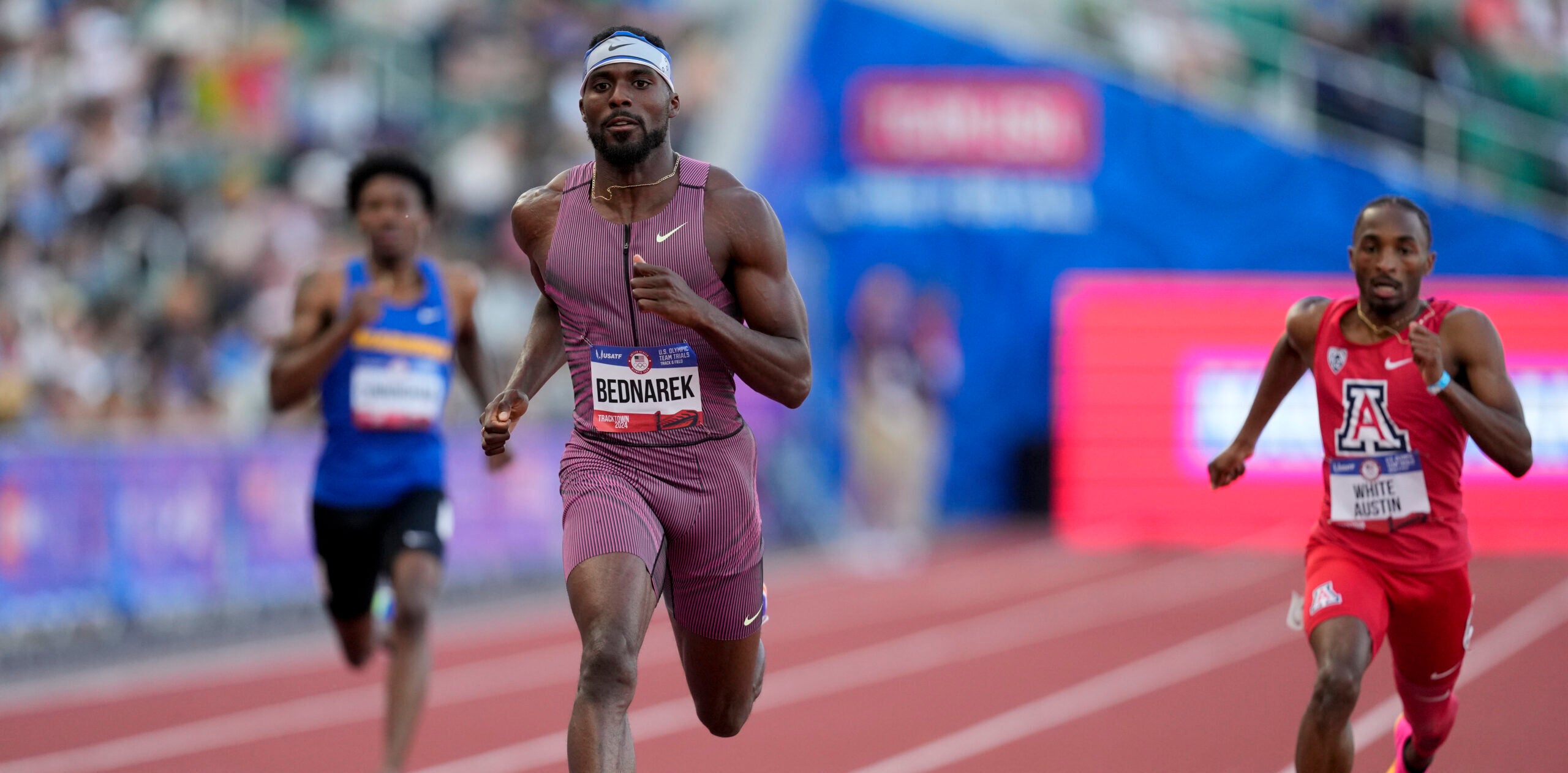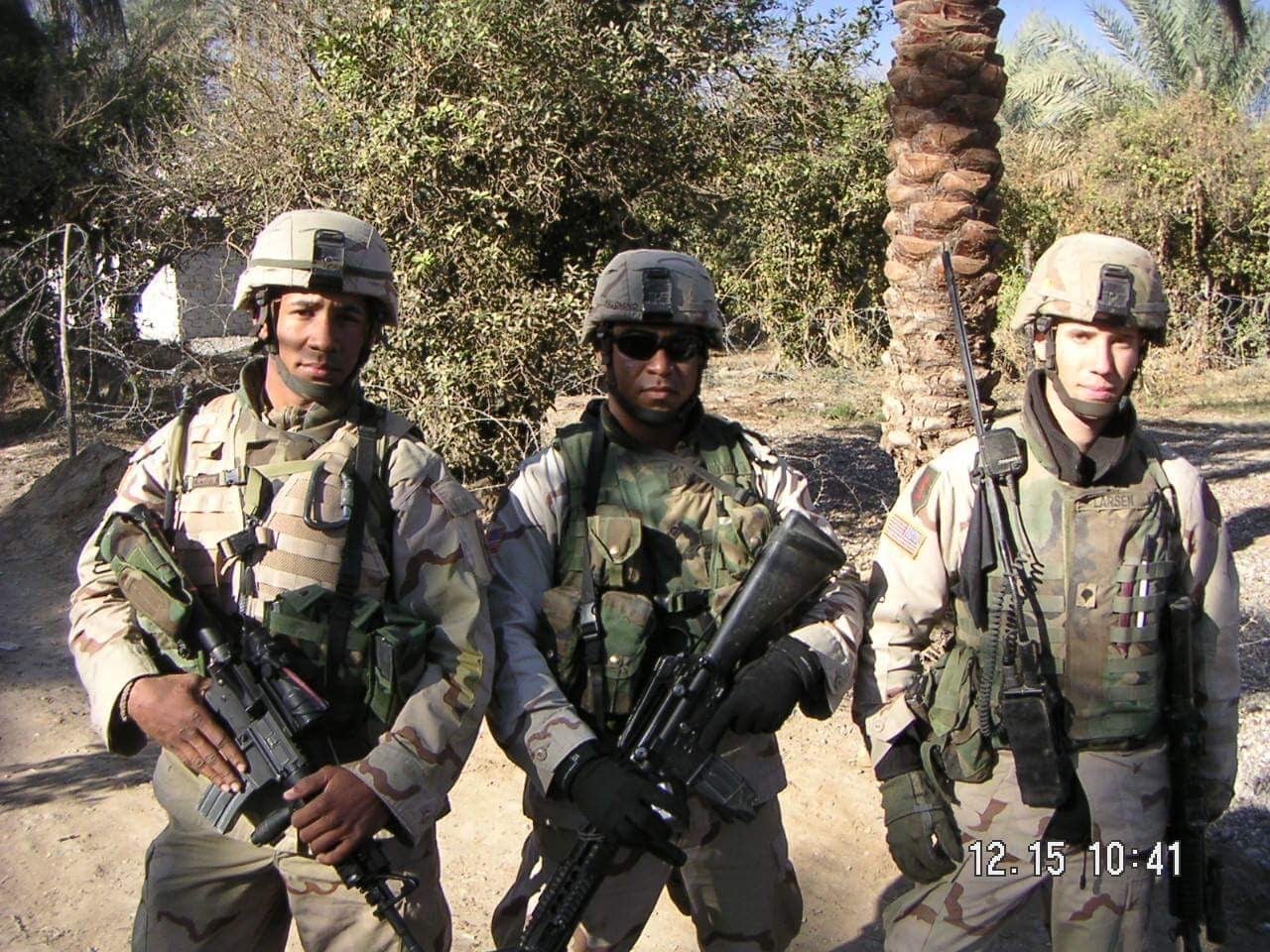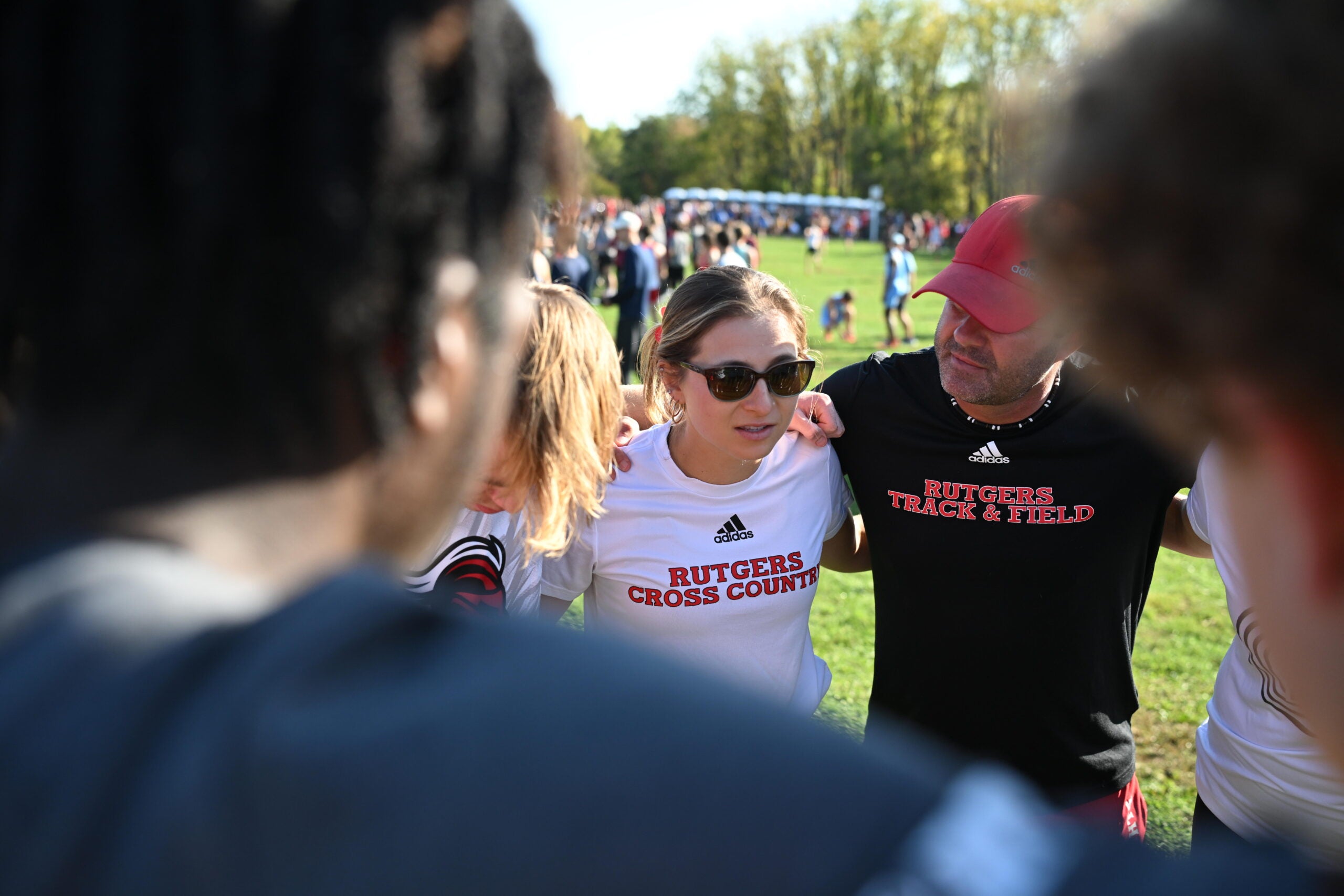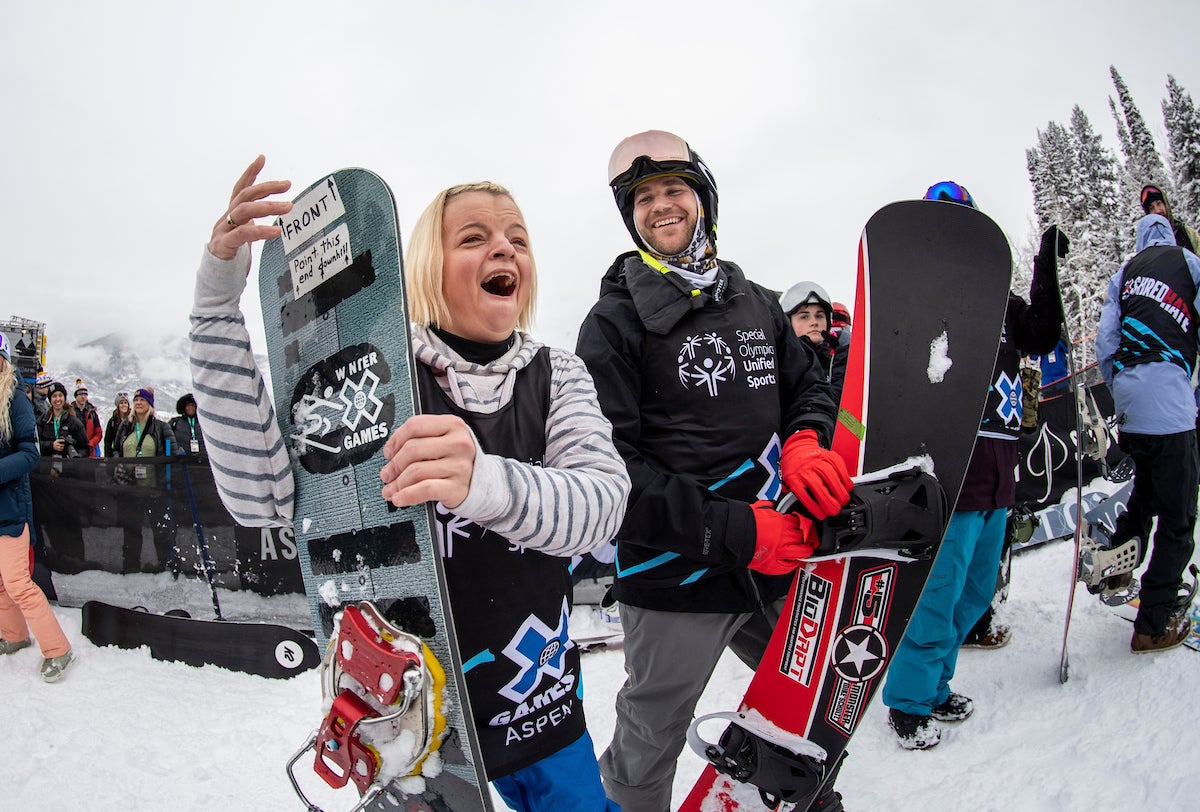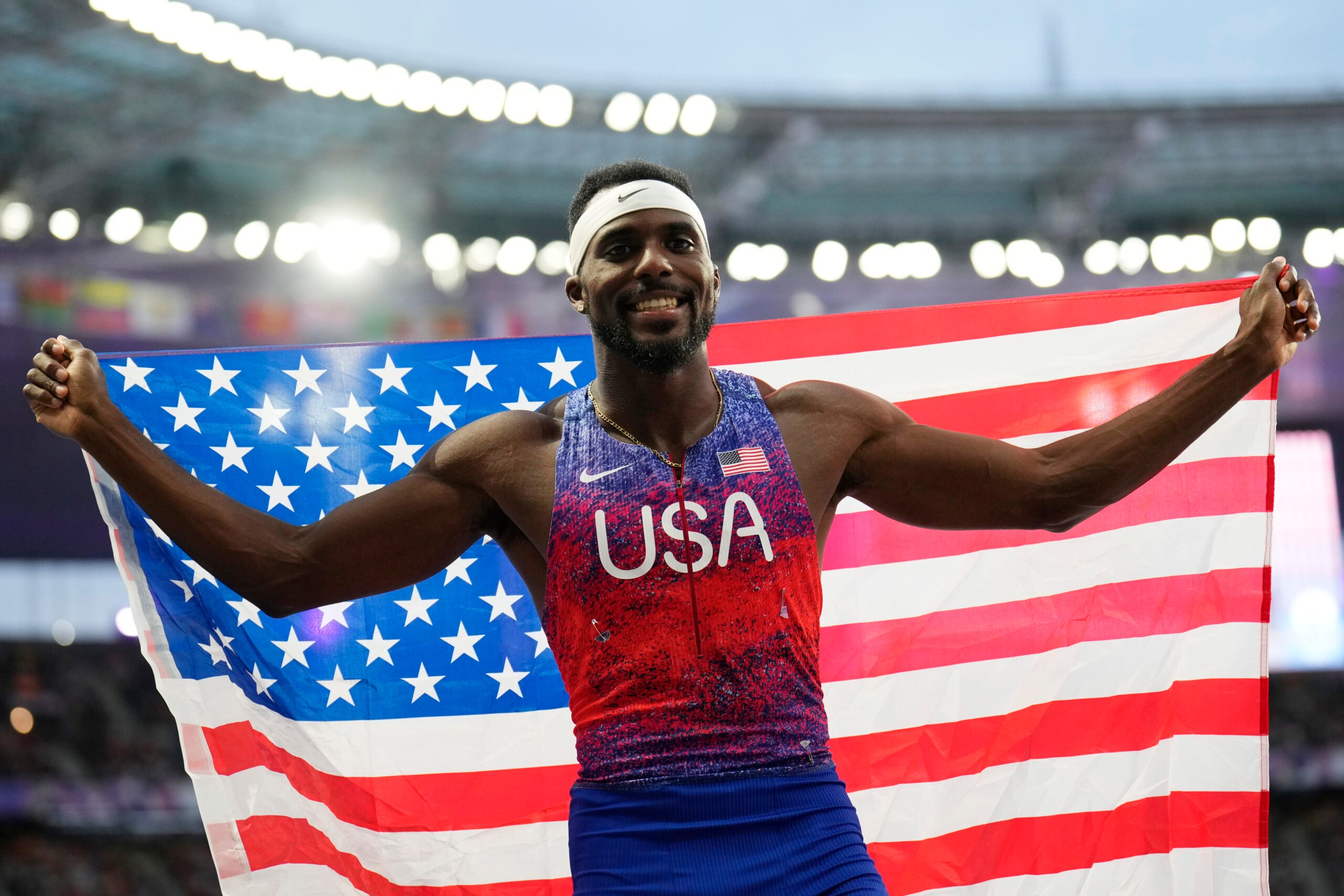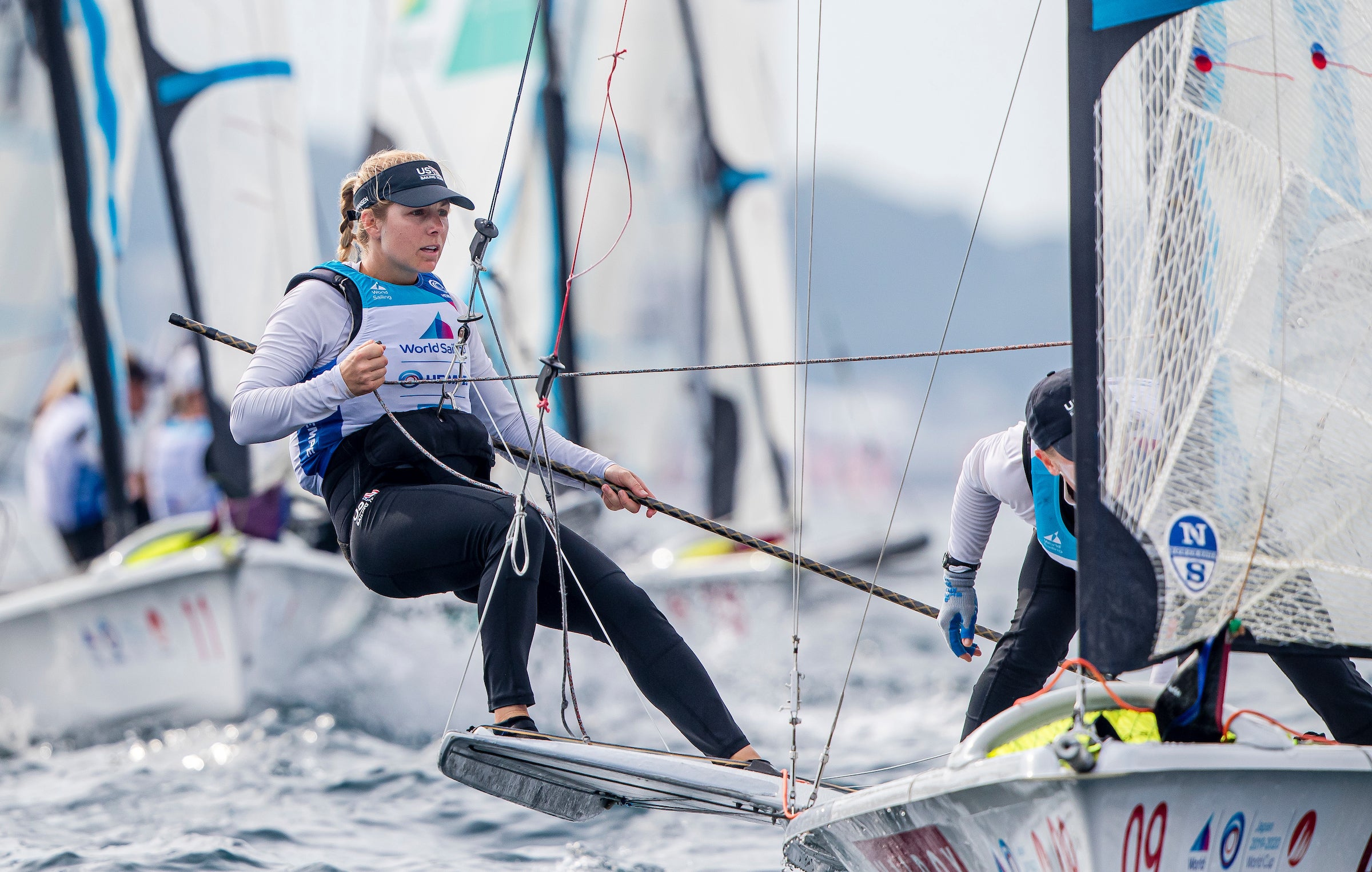Sprinter Kenny Bednarek can outrun the fastest athletes in the world. But before the track and field star won a silver medal in the men’s 200 meter event in the 2020 Summer Olympic Games in Tokyo, he was a kid racing his brother in Rice Lake.
“We used to run to the library all the time in the snow,” said Bednarek. “When the lake froze over and everybody had their ice shacks out there, we would say, ‘Hey, we’re bored at home. Let’s go to the library real quick.’ So instead of taking the long path, we’d take the short path. We’d just go across the lake.”
Bednarek eventually moved from the frozen lake to the high school track. In 2018, he broke three WIAA Boys Track & Field Records in the 100-meter dash (10.42, Division 2 record), 200-meter dash (20.43, state record), and 400-meter dash (46.73, state record) — records he still holds to this day.
News with a little more humanity
WPR’s “Wisconsin Today” newsletter keeps you connected to the state you love without feeling overwhelmed. No paywall. No agenda. No corporate filter.
“My (Rice Lake) high school coaches Jared Sesada or Matt Tebo pushed me to pursue excellence and strive to be better every single time I stepped on the track,” he said.
That mindset has stuck with him and fueled his career, leading to medals and some of the fastest times in the world.
It also helped him qualify for his second Summer Olympic Games. In Paris, he’ll be competing in the men’s track and field 100m event on Aug. 3-4 and the 200m event on Aug. 5-8.
WPR “Wisconsin Life” host Maureen McCollum talked with Bednarek from his home in Florida via Zoom, shortly after the Olympic Trials in June.
This interview has been edited for brevity and clarity.
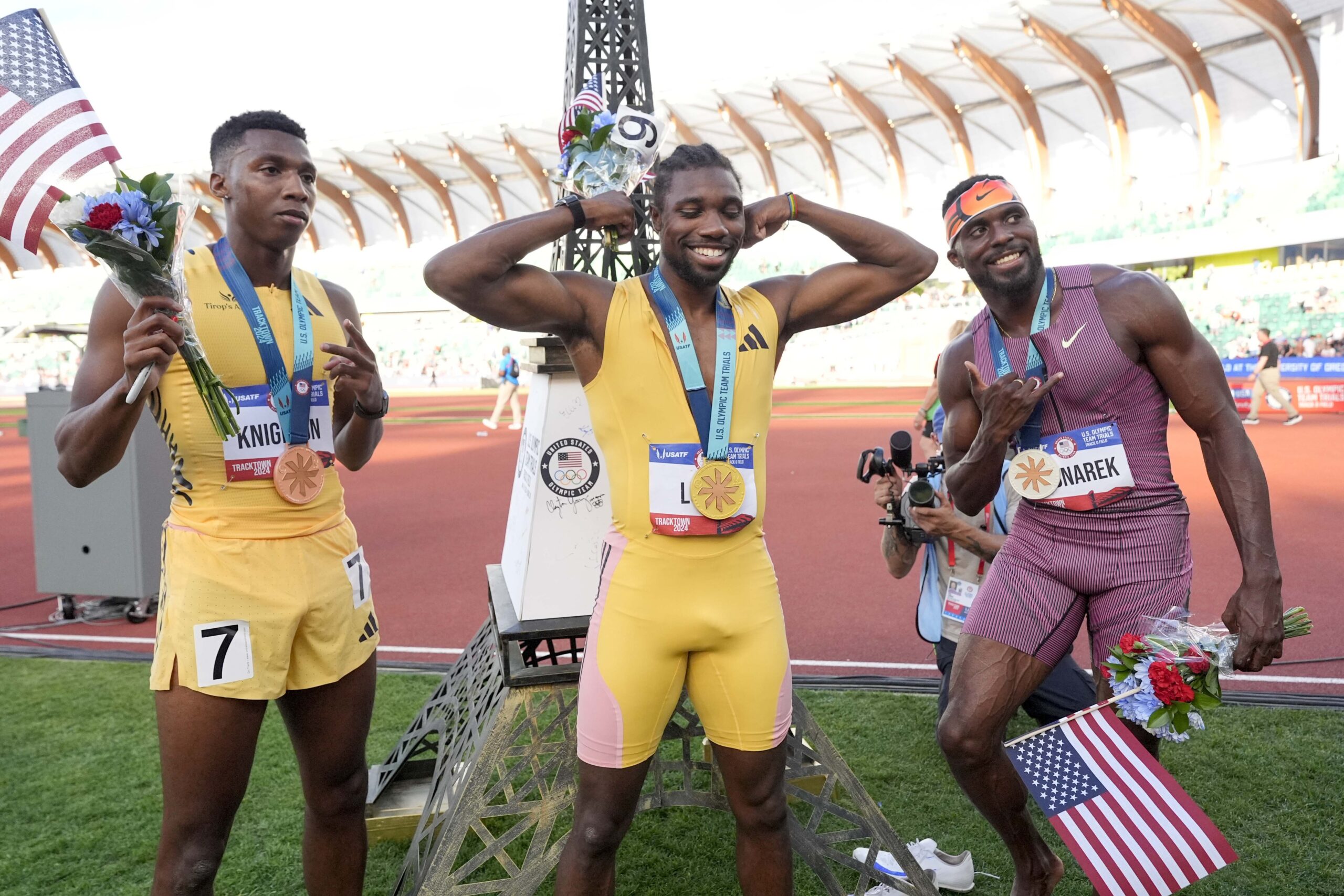
Maureen McCollum: Congratulations on qualifying for another Olympic Games. At the U.S. Olympic Track & Field Trials in Oregon in June 2024, you not only qualified in the 100m and 200m events, but you also got personal bests in those races at 9.87 seconds for the 100m and 19.59 for the 200m. In fact, your 200 was the second fastest in the world this year, milliseconds behind Noah Lyles. What worked so well for you during the trials?
Kenny Bednarek: My mindset going into trials was just winning. It was never, “OK, I’m going to crush my PB (personal best).” My main goal is just … if I go out and compete, I get the win, and a PB usually comes with that because everybody’s going to be on their A-game at trials. Crossing the line with a PB in the 100 and the 200, it wasn’t a surprise at all, honestly. Now, it’s like, “OK, I got second for both. What can I do to make sure that doesn’t happen again?”
MM: Is there anything mentally or physically that helped you perform so well that week?
KB: Practice. Also just being healthy because the last two years I was dealing with an injury. It’s a little more difficult to hit your full stride when you’re coming back from a toe or little hammy pull.
Going into Qatar and Doha (Diamond League in May 2024) and having a PB there — it felt so easy. That’s when I was like, “OK, I’m ready for trials.” Then, going back to practice after that, it was more about maintaining. There is not much (more) we really need to do.
That’s why I was confident coming in (to the trials), like, “Hey, I’m going to destroy the competition.” That’s the goal.
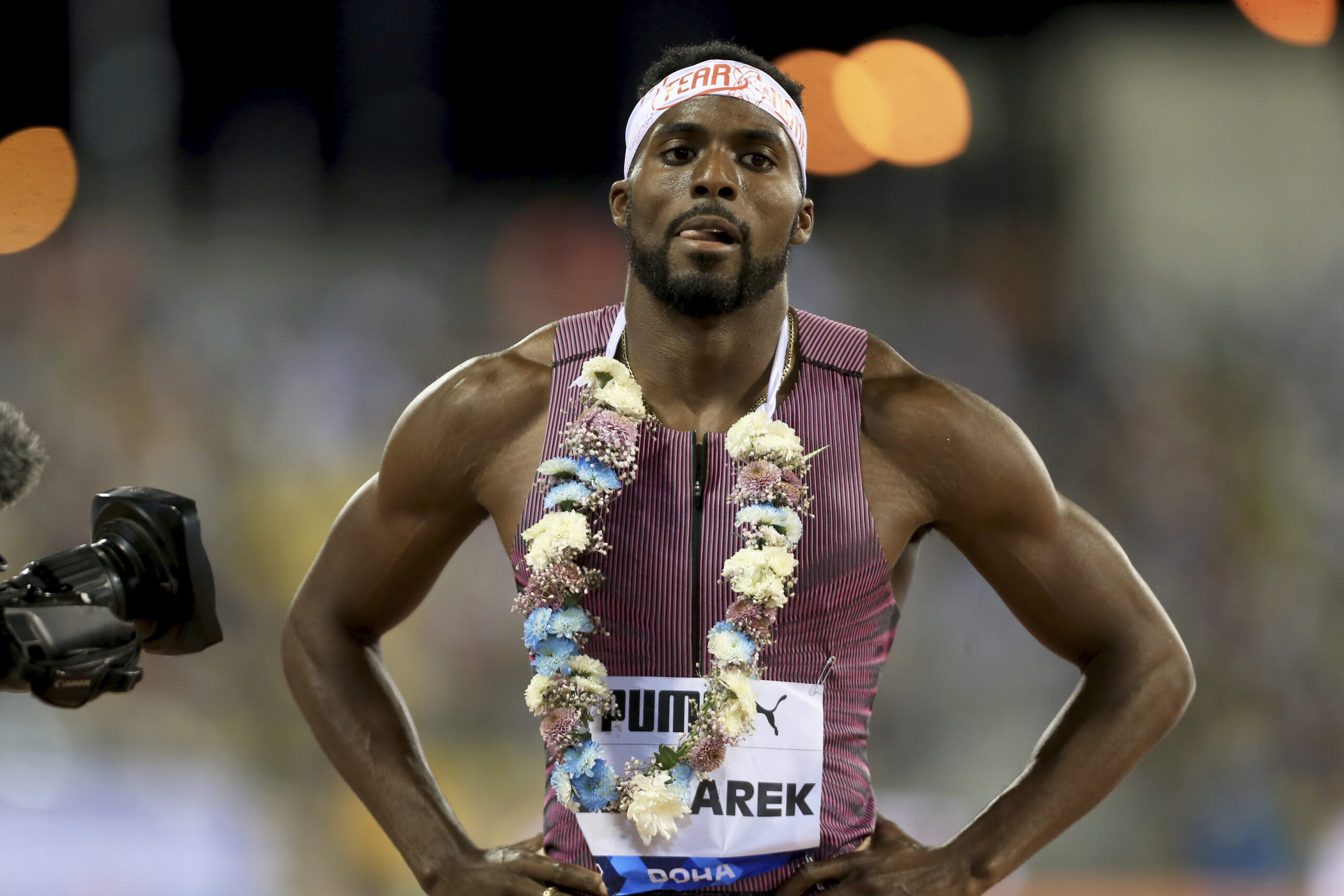
MM: You’re very active on social media, like Instagram and X, which is fun to follow. You mentioned online after running the 100 (at trials) that you’ve only raced it twice this year. Can you talk about your evolving relationship with that race in particular?
KB: I haven’t run it that many times. I’m finally getting my feet wet in that event. I got a PB, but that’s nowhere near my capabilities, that’s nowhere near my peak. I know I can run 9.7 or faster. I just need more races underneath my belt. There’s way more to come when it comes to the 100. So for Paris, I plan on throwing down a hot time and shocking the world.
MM: There are major differences with the 100 and 200. What do you love about each of those races specifically?
KB: (Laughing) With the 100, it’s easier for me to run that because it’s quicker. You have no time to make any errors because it’s nine seconds. So I love that race just because it’s quicker and the rush of running 100m and crossing the finish line first, it’s amazing.
And then with the 200, there’s something different about that. You have to have speed, but you also have to have a little stamina. You have to be on point, technically. A lot of people are good at running on the curve. Then once they get on that last hundred meters, if your technique is not on point, you’re going to start decelerating at a fast rate.
That’s something I like about the 200 — getting out on the turn and then holding on to that top speed. Whoever can hold on to the top speed for the longest is going to win the race.
MM: Millions of people around the world run track. What sets apart the fastest runners, like you and your teammates, from the rest of the pack are literal milliseconds. What puts you milliseconds ahead of the competition and makes you one of the fastest, strongest runners in the world? Is it your start? Do you have a strong finish?
KB: First of all, I think it’s just my mentality. Every single time I go into a race, I don’t make it bigger than it really is. Even going to Olympics — it’s one of the biggest races in my life. But I’m like, “Well, it’s another track meet.” I can go in calm, have fun and just run. Do what I do best.
But also, just being a professional, (I focus on) how I recover and everything. I do a lot of grounding here. I live a farm-to-fridge life. I try to stay with more organic foods. Like you said, it’s all milliseconds. So if I can fix anything by like 1 percent, that’s 1 percent I have over everybody else. It can make a big difference in winning the 100m or the 200m.
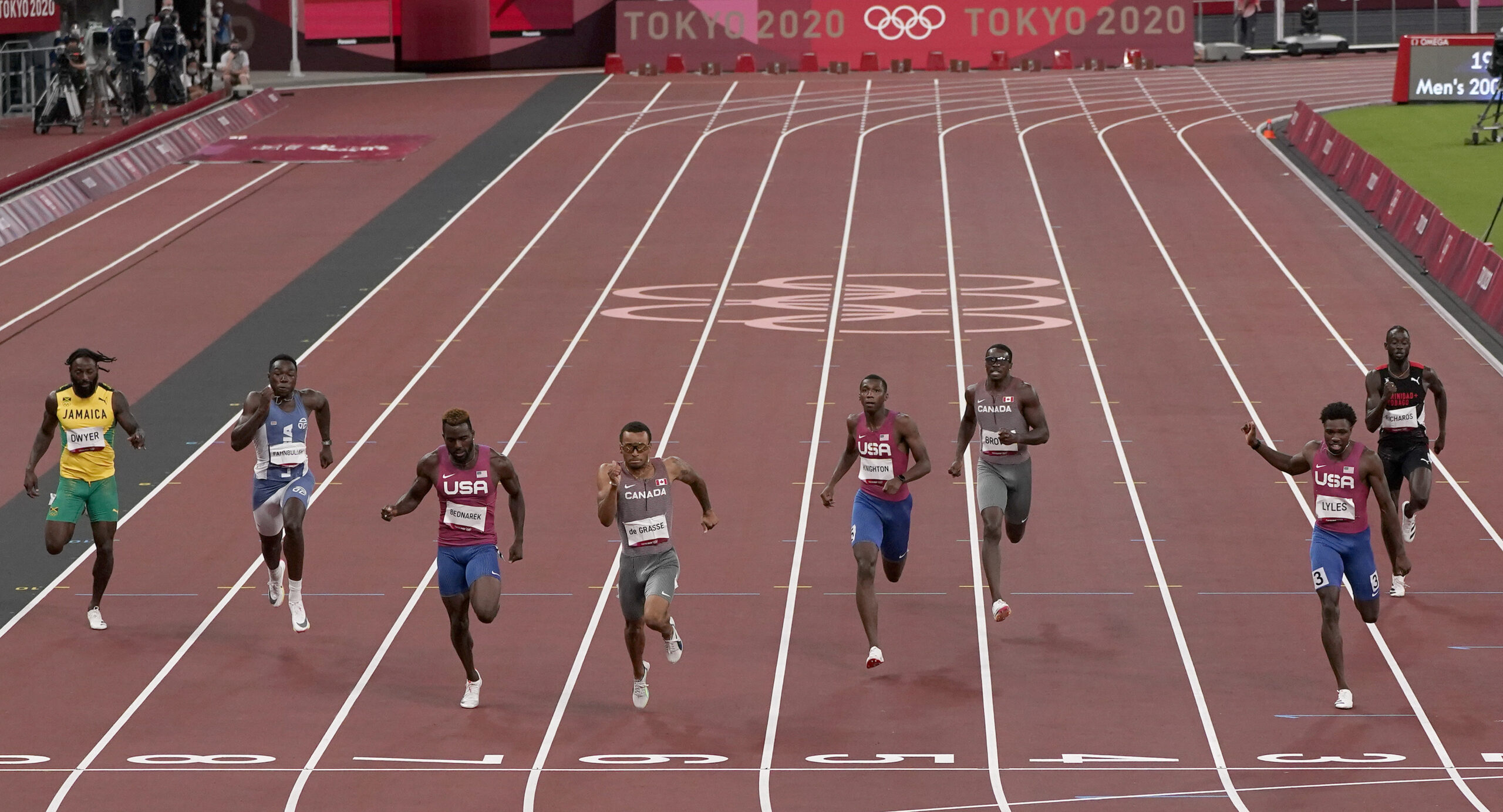
MM: You’ll be making your second Olympic appearance this year. This comes after winning a silver medal at the 2020 Summer Olympic Games in Tokyo. Do you feel like you’re approaching the Paris Games any differently?
KB: I think a little bit. At my first Olympics, I felt like I was still a rookie. I came up in 2019, and then COVID came in 2020 and then, bam, here are the Olympics in 2021. I know what it takes. I’m not going to be starry-eyed like last time. I’m a gamer. I know what I need to do in order to get the gold medal.
I’m a lot more confident coming in this year. That year was kind of the first time I was competing against everybody. But now, I’ve seen the same people for the last three to four years, so I already know what they got in store for me.
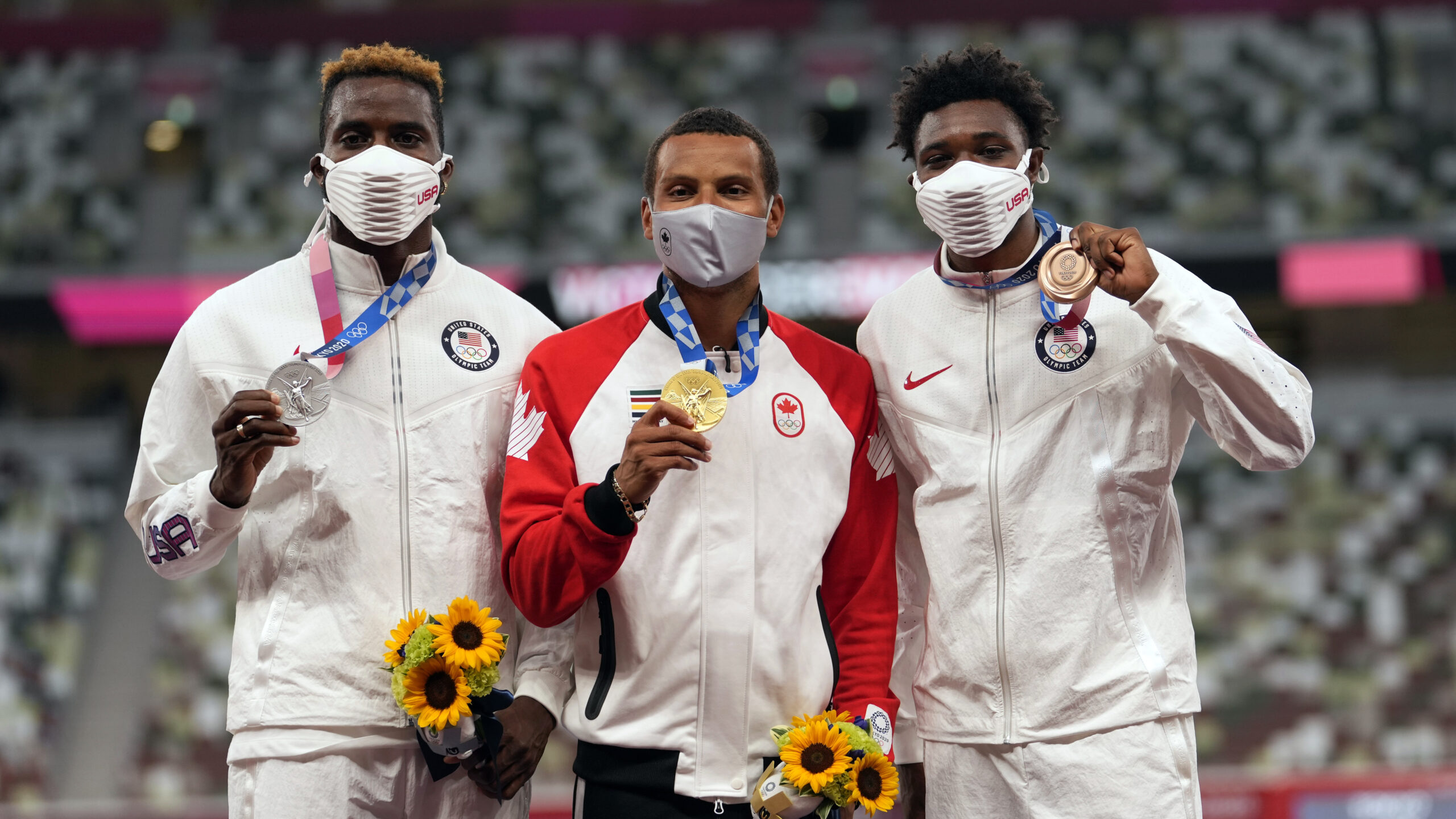
MM: Will your family and friends be able to travel with you?
KB: I’m bringing my mom, my girlfriend and my team. I mean, that’s the thing that I’m most excited about this year — being able to bring the family. They can see the whole Olympic experience with me. It’s going to be a lot of fun.
Just having fans is going to make a big difference. Being in the finals for the 200 at Tokyo with literally nobody there, it was just a weird feeling. I was thinking, “This is the biggest race of my life yet there’s nobody here.”
MM: And sometimes, knowing that loved ones are in the stands cheering you on, that can give you an extra boost.
KB: Sometimes I’m like, “OK, I can’t let you down because you’re here.” It definitely helps a lot having the people that support you there. It definitely gives you a little bit more energy. We’ve all worked together as one in order to get to this point and I don’t want to let them down.
The funny thing about my mom (Mary Ann Bednarek) is every single time she’s in the stadium — no matter how many people are there — I can always hear her. It’s crazy. She just has that certain pitch and I’m like, “Yeah, that’s my mom.”
MM: That’s amazing. And your mom, Mary Ann, she still lives in Rice Lake?
KB: Yeah, she does.
You know, if it weren’t for that community and obviously my mom, I wouldn’t be here. They’ve been supporting me at the biggest stage. I always try to go back every single time — after World Champs or the Olympics — just to kind of give back, and obviously see my family and my friends and everything.
MM: Is there anything else you want to talk about regarding the Olympics or track in general?
KB: I’m just looking forward to having a lot of fun. It’s going to be more exciting to see the fans and have that Olympic experience. I’m going to be out there to make Rice Lake proud and the U.S. proud.
(Track is) just fun. I’ve loved running (since I was a) little kid. That’s where I feel freest. I love the competition. Nothing beats having that rush feeling when you come across the finish line first. The sport in general, it’s just a grind and I love it.
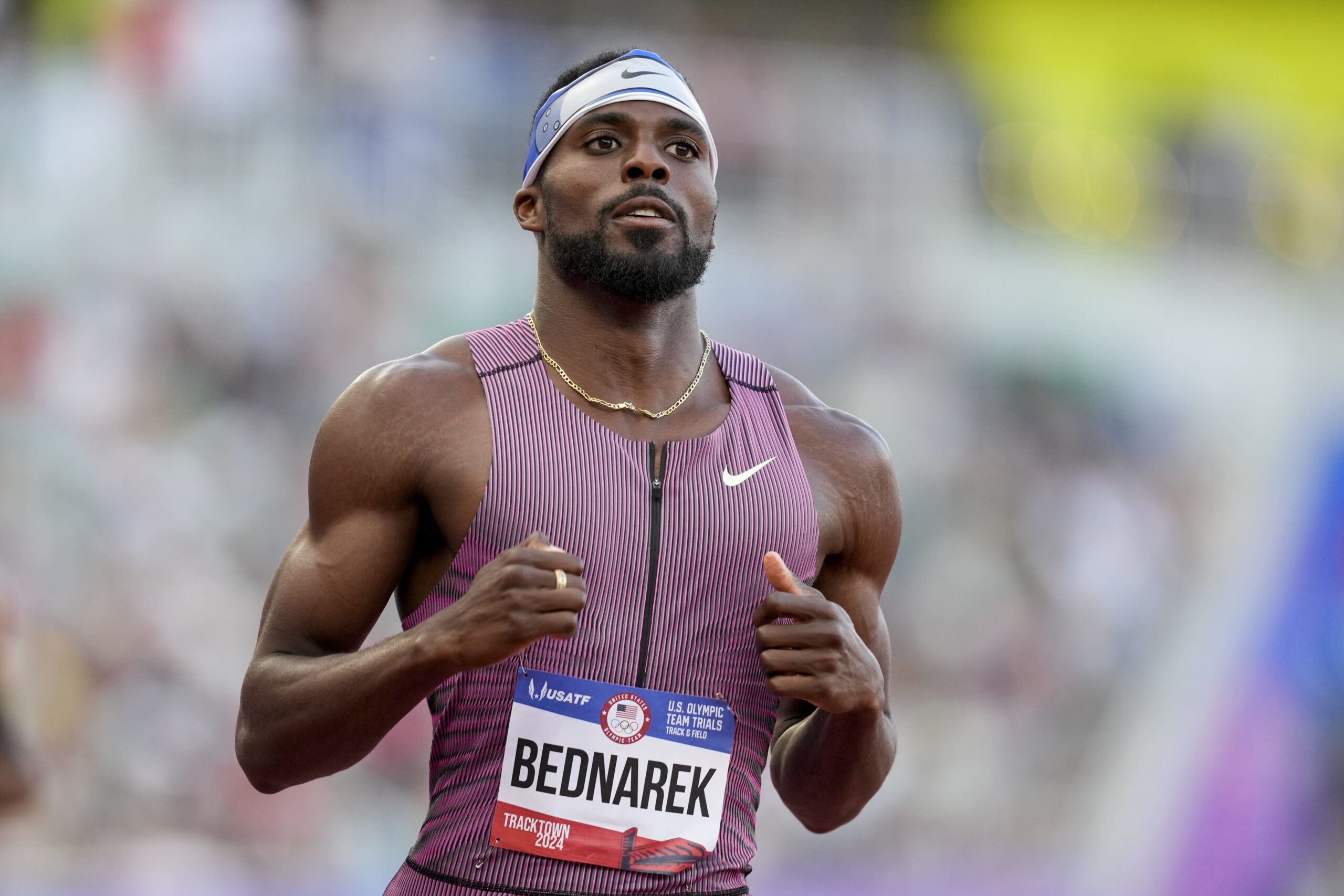
WPR is talking with Wisconsin’s athletes competing in the 2024 Summer Olympic Games in Paris. Head to WPR’s special Olympic and Paralympic page to meet more of the competitors.

